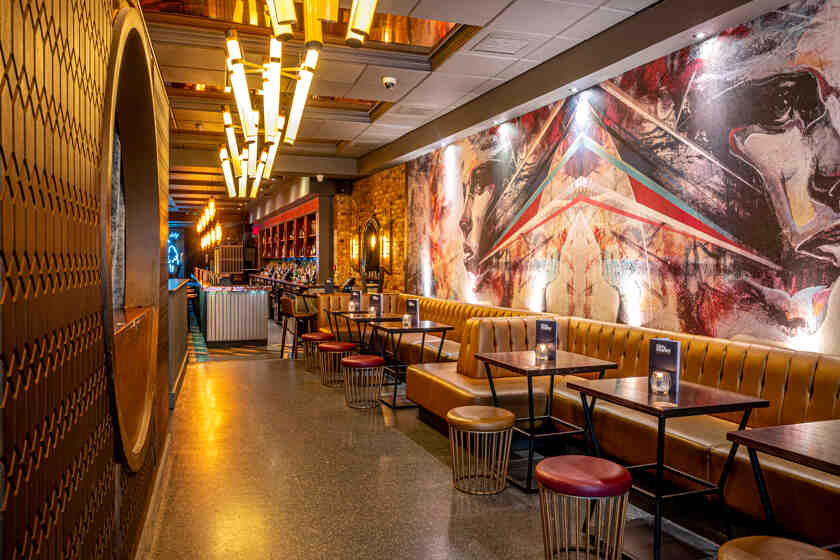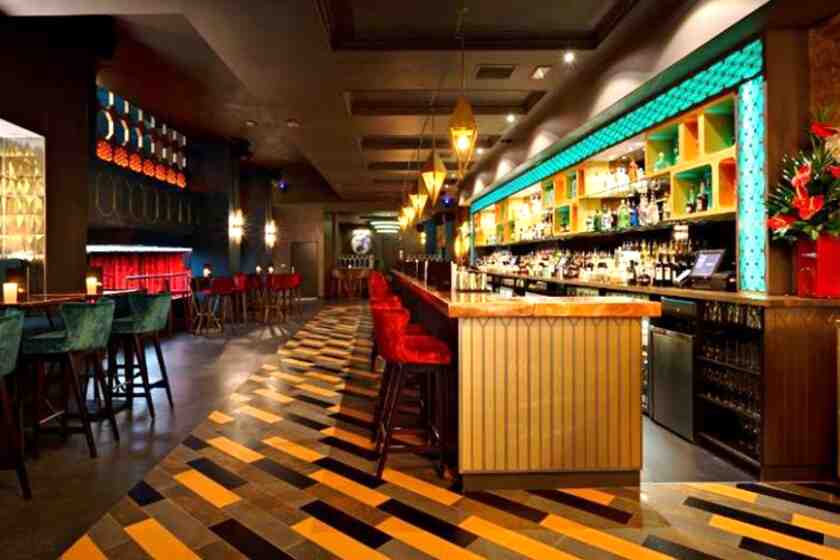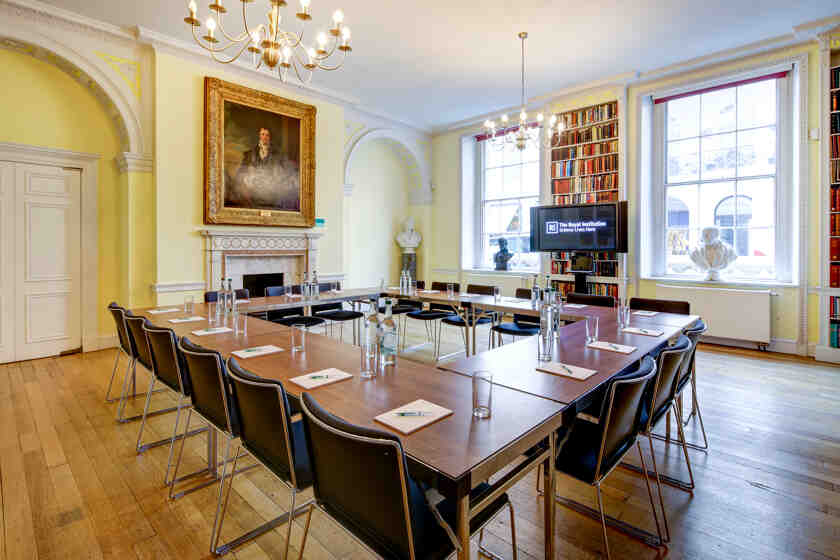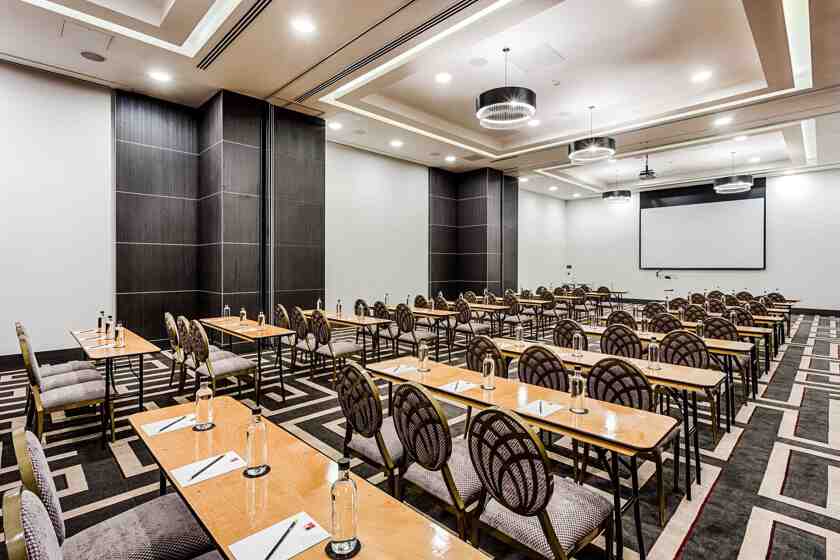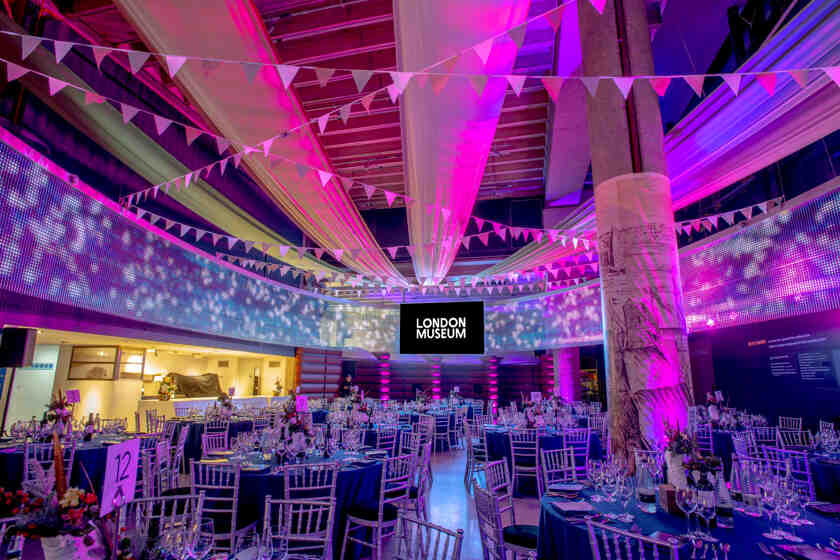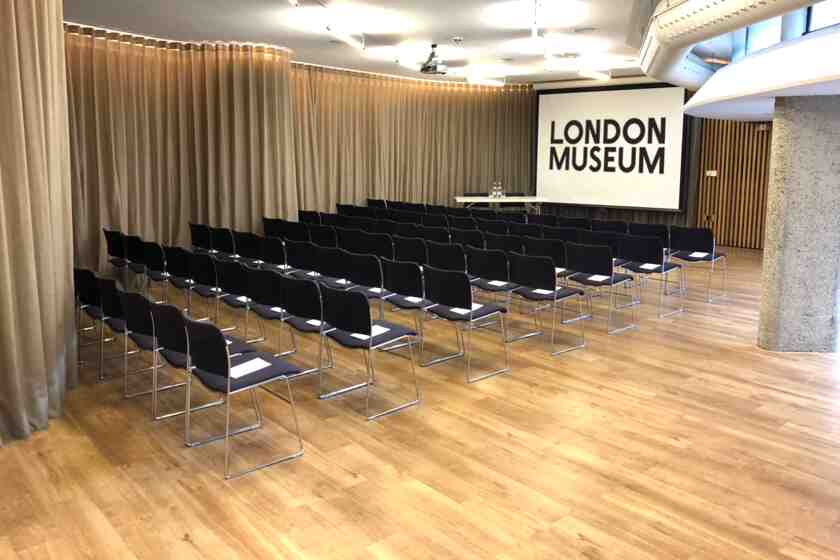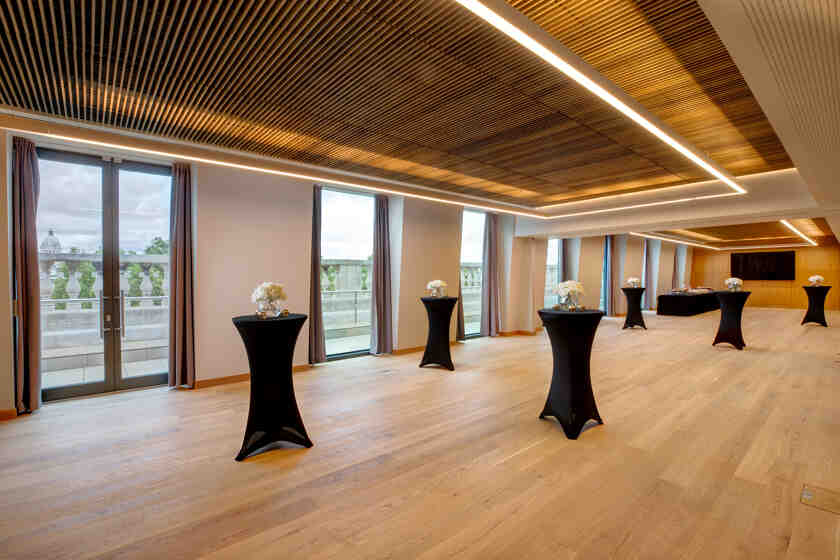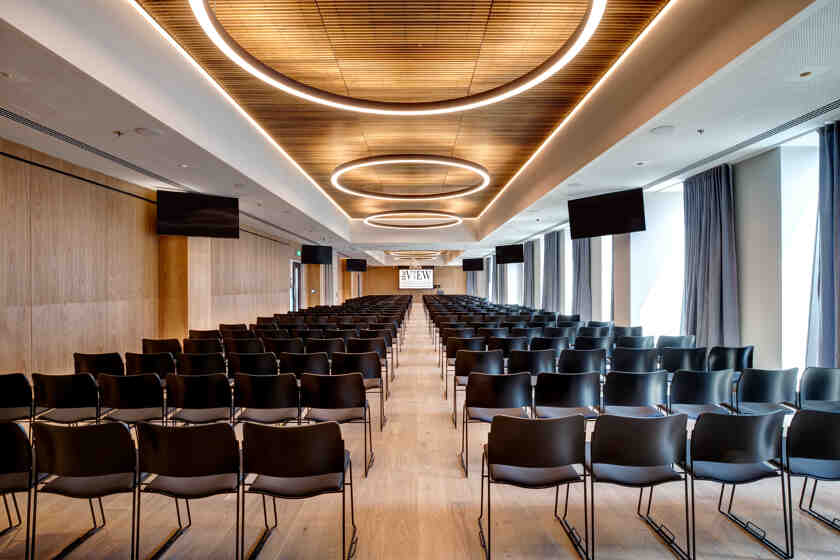Top Trending Academic Venues to Hire in London for 2025
- BarbicanResponds within 8 hoursFrom £100per dayStanding400Theatre100Cabaret100Dining200
- Old StreetResponds within 2 hoursFrom £54per hourStanding200Theatre160Cabaret100Dining60Boardroom40
- StratfordResponds within 1 hourFrom £400per morningStanding300Theatre220Cabaret120Dining200Boardroom100
- MayfairResponds within 2 hoursFrom £175per hourStanding750Theatre440Cabaret56Dining290Boardroom30
- WestminsterResponds within 2 hoursFrom £66per dayStanding250Theatre150Cabaret66Dining80Boardroom30
- ShoreditchResponds within 1 hourFrom £110per dayStanding1206Theatre620Cabaret346Dining510Boardroom216
- London BridgeResponds within 4 hoursFrom £1,600per eveningStanding60Theatre60Cabaret45Dining40Boardroom22
- BarbicanResponds within 4 hoursFrom £5,000per dayStanding600Theatre350Cabaret210Dining240Boardroom102
- EustonResponds within 8 hoursFrom £70per dayStanding1200Theatre852Cabaret360Dining506Boardroom444
- WestminsterResponds within 8 hoursFrom £1,050per dayStanding2000Theatre875Cabaret320Dining400Boardroom100
- BarbicanResponds within 8 hoursFrom £84per dayStanding800Theatre300Cabaret300Dining400Boardroom30
- ShoreditchResponds within 2 hoursFrom £900per dayStanding60Theatre60Cabaret24Dining40Boardroom24
- Tavistock SquareResponds within 1 hourFrom £1,500per dayStanding250Theatre180Cabaret150Dining130Boardroom49
- HolbornResponds within 8 hoursFrom £91per dayStanding300Theatre300Cabaret120Dining180Boardroom63
- HammersmithResponds within 1 hourFrom £600per eveningStanding300Theatre316Cabaret64Boardroom60
- Bethnal GreenResponds within 4 hoursFrom £100per hourStanding2000Theatre500Cabaret500Dining500Boardroom450
Most Popular Academic Venues to Hire in London
Top Tips for Giving an Academic Lecture at the Venue
Lectures aren’t always the most exciting things. Most of use have sat through more than one that just seems to drag on and on. Where the only notes taken are a series of random doodles to stave of the boredom, and where you’ve planned in exquisite detail exactly what you are going to eat for the next week.
We’ve also all sat through lectures that have
had us on the edge of our seats, excited to do the extra reading, and already
coming up with questions to ask. It’s not just down to the content, it’s also
the style of the lecture. How you present academic work can influence how much
your audience pays attention. We have some top tips to help you to ensure that
everyone gets the most out of the experience.
Summarise at the Beginning
Let your audience know what they are to
expect from this lecture. Being able to quickly summarise everything that you
are going to go through will let the audience know that you’re unlikely to go
off on a tangent – this gets them into the correct frame of mind to listen
carefully. If there is one particular section that attracts their interest at
this stage, then they are going to make sure that they listen intently to the
whole lecture so that they hear all of the context surrounding it.
Why is Your Lecture Useful?
While summarising at the beginning is good
practise, you should also inform your audience exactly what they are going to
get out of your lecture; what benefit they will receive from it. This is something
that can and should be tailored depending on the audience you are presenting
to. While you may be giving what is basically the same lecture, it should differ
each time depending on what the room needs to know. Letting them know that they
will get use out of what you are about to say will mean that they are going to
be more attentive.
Don’t Have Too Many Points
While your research may be fascinating, you
aren’t going to have the time to delve into it as fully as you might like in a
single lecture. Our brains just don’t have the bandwidth to handle so much new
information, and so you’re unlikely to get much of a reaction from your
audience if you bombard them with too many facts. Keep to a maximum of five
sections for the whole lecture, and don’t break these down too much into smaller,
component parts. Summarising what it is you will be talking about in the introduction
is the first step, but each section needs to have a clear objective. Getting
that across as you continue your lecture will be your main goal.
Understand Your Venue
Not all lectures are held with the
traditional tiered seating. In fact, there are so many different academic
venues for hire in London that you might find yourself in a venue that’s a
little more… unusual. Many places are moving away from the image of lectures
always being in the same style of building and are looking towards more innovative
venues that encourage audience participation. Something that feels like a cross
between a coffee meeting and a TEDTalk. Knowing what your venue looks like, and
that they have the tech available for you to set up your presentation exactly the
way you want it, is a must do beforehand. Nothing will fluster you more than
turning up to a venue that is the opposite of what you were expecting.
Don’t Over-use Slides
This should go without saying but having
too much writing on your slides will make your audience tune out pretty
quickly. As well as this, having many sparse slides that you flick though every
couple of seconds will mean that no one will be able to follow what is going
on. Instead, only have the important facts mentioned, and ensure that all
graphics are easy to read and understand. Having plenty of pictures and images
is a plus, but again, too many slides will mean that your audience might lose
focus. If you have a video clip to play, keep it short and informative. This is
a great tool to break up your lecture and hammer home some key points but use
it sparingly. Always lay the main points out clearly, so that people have time
to take notes and let the message sink in.
Practice
If this isn’t a lecture that you’ve given
many times before, you need to practice it out loud. This will allow you to do
many things. First of all, you’ll get your timing right. Talking at an even
pace means that you will be easy to understand, so if that means cutting out
part of your lecture, then do it to keep the correct pace. It will allow you to
edit any clumsy sections that aren’t 100% clear so that the whole thing will be
easy to follow. Practicing will help you to calm any nerves that you might
have. The better you know your lecture, the smoother it’s going to go and the
more confident you will feel. Finally, practicing will also ensure that all of
the technical parts work first time, so there’s unlikely to be any mishaps.
Everyone wants to be the person that gives
a lecture their audience will remember for years to come. Not everyone is going
to be able to achieve that however, which is why the first step is to always
keep things simple, and to show your research in a calm manner, without going into
unnecessary detail. As you grow used to what your audience wants from you, you
can tweak your lecture and presentation style until you always walk on stage
with confidence, and your audience always learns something new and interesting.



